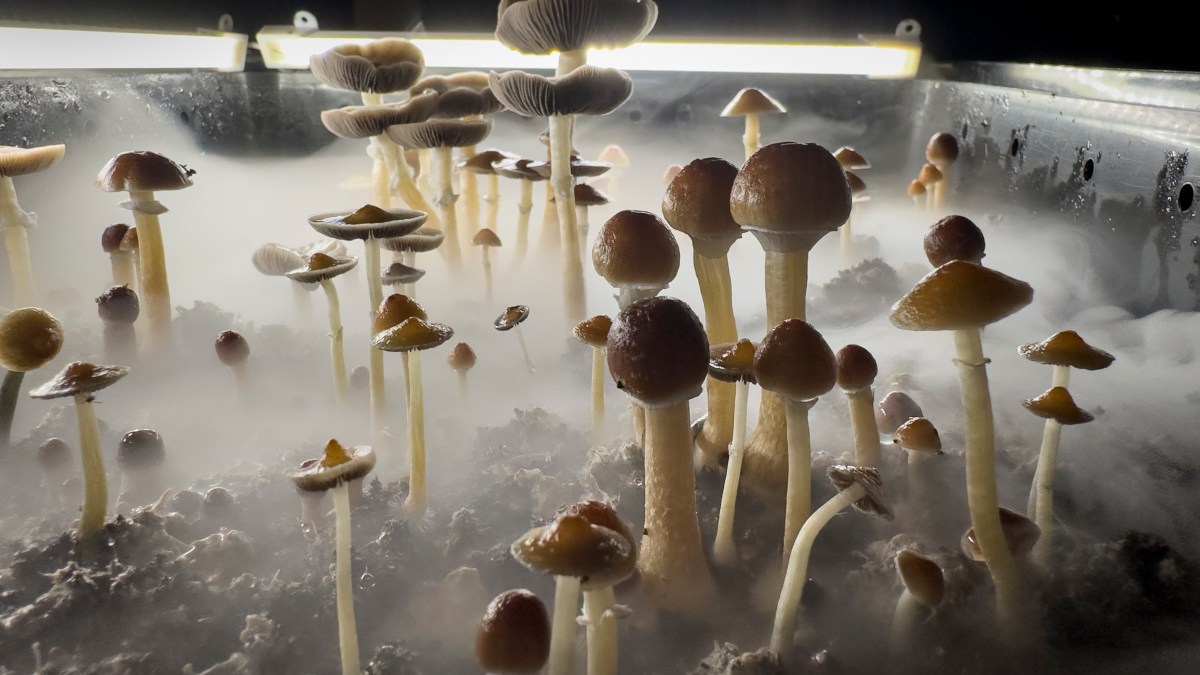The first clinical trial to explore whether the psychedelic drug found in magic mushrooms can be used to treat Parkinson’s disease has delivered exciting and unexpected early-stage results, scientists have said.
Twelve patients who were given psilocybin in a controlled setting reported improvements in mood, cognition and motor function that lasted for months. There were no serious side-effects, which means that a larger trial involving 100 more patients has been given the green light.
Parkinson’s affects about 153,000 people in the UK, with symptoms including tremors, memory problems, depression and anxiety. It is caused by a loss of nerve cells in a part of the brain called the substantia nigra. This leads to a reduction in dopamine, a chemical that is key to regulating movement.

Dr Ellen Bradley
“We are still in very early stages, but this first study went well beyond what we expected,” Dr Ellen Bradley, of the University of California San Francisco, the lead author, said.
“It was unexpected that patients would actually have improvement in their motor function and cognitive performance. These were definitely exciting preliminary findings, but we have to keep in mind that this was a small pilot study. We can’t draw conclusions yet.”
The research, published in the journal Neuropsychopharmacology, is thought to mark the first time a psychedelic has been tested on individuals with a neurodegenerative disorder. It involved 12 participants with mild to moderate Parkinson’s disease and an average age of 63. They were given two relatively high doses of psilocybin: 10mg followed by 25mg two weeks later, alongside psychotherapy.
• Patrick Cox: rehab and psychedelics saved my life
Nausea, anxiety and elevated blood pressure were reported while they were under the influence of the drug but these side-effects were not severe enough to require medical attention.
At follow-up appointments conducted one week, one month and three months after the dosing sessions, they reported significantly improved mood and motor function, well beyond the period in which psilocybin remained in their systems.
There are several possible explanations for how the hallucinogen might have helped. A boost in mood may have encouraged patients to become more socially engaged and to move more, leading to further improvements in physical and mental health. Alternatively, psilocybin’s effects on brain inflammation and its ability to stimulate neuroplasticity — the brain’s capacity to reorganise and form new neural connections — may play a more direct role.
The main conclusion from the study was that the drug showed no obvious signs of doing harm. “The patients in the study were able to complete high-dose psilocybin therapy without serious side effects,” Bradley said. “That was incredibly encouraging, since we were worried about the risks of psychedelics for those with neurodegenerative disease. Reassuring safety data gives us a green light to move forward.”
• £80 blood test could detect Parkinson’s disease before symptoms
The larger trial is being funded by an anonymous donor and the Michael J. Fox Foundation for Parkinson’s Research.
“It’s a really exciting next step,” she said. “We will be able to test how effective psilocybin therapy is for people with Parkinson’s and also collect multimodal biological data — from brain stimulation, imaging, blood tests — that will help us figure out exactly how psilocybin impacts different aspects of Parkinson’s.”
“We hope this will really speed up progress towards new treatments for our patients. The Parkinson’s community has been incredibly supportive of this research, and we want to deliver for them.”
This news item came from: https://www.thetimes.com/uk/science/article/magic-mushroom-drug-offers-hope-for-parkinsons-patients-l3k98btt9



